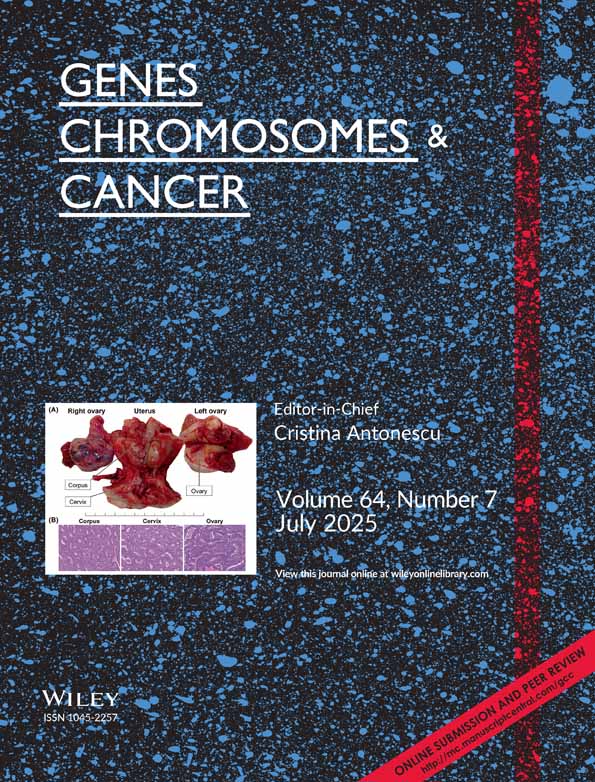Analysis of PTEN mutations and deletions in B-cell non-Hodgkin's lymphomas
Abstract
The PTEN gene is involved in 10q23 deletions in several types of cancer, including glioma, melanoma, endometrial and prostate carcinomas. The PTEN gene product is a dual-specificity phosphatase with putative tumor suppressor function. Deletions and rearrangements of 10q22–25 have been reported in ∼5%–10% of non-Hodgkin's lymphomas (NHLs), raising the possibility of PTEN involvement in these tumors. In order to address this question, we analyzed a panel of NHLs (n = 74) representative of the main histologic subtypes for mutations and homozygous deletions of PTEN. We report somatic coding/splice site mutations in 20% (2 of 10) of Burkitt's lymphoma cell lines and in 3% (2 of 64) of primary NHL cases analyzed. No homozygous deletions were found in these tumors. Interestingly, this study showed that cytogenetically characterized NHL cases (n = 6) with 10q22–q25 abnormalities displayed neither biallelic deletions nor mutations of PTEN. These results suggest that a tumor suppressor gene distinct from PTEN may be involved in 10q deletions in this subgroup of NHL cases. Genes Chromosomes Cancer 24:322–327, 1999. © 1999 Wiley-Liss, Inc.




